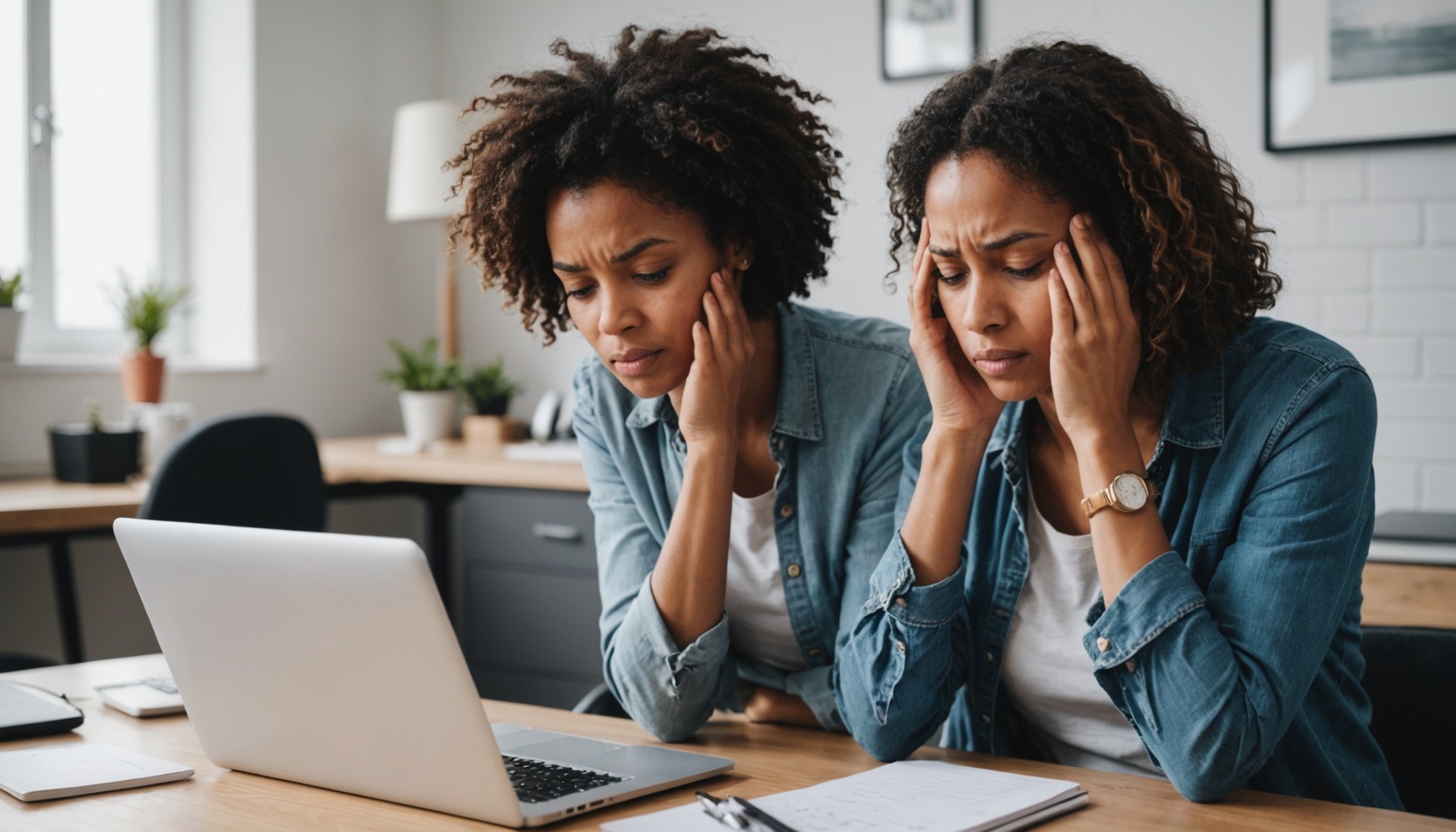In today’s fast-paced world, an increasing number of people are grappling with anxiety and stress. While it’s a common part of life, when anxiety becomes overwhelming, it can severely affect your mental and physical health. Understanding what anxiety is and learning effective ways to manage it is crucial for maintaining a balanced, healthy lifestyle. Let’s delve into the realm of anxiety, uncover its symptoms, and explore practical strategies that can help you manage it better.
Understanding Anxiety and Its Impact
Anxiety is more than just feeling stressed or worried. It is a mental health disorder that affects how you feel, think, and act. Many people experience anxiety as a natural response to stressful situations, but when it becomes excessive, it can lead to a range of symptoms and disorders.
Also to read : How does physical activity influence your overall well-being and health?
Recognizing the Symptoms
Anxiety manifests in various forms, and recognizing its symptoms is the first step towards managing it effectively. Symptoms can include:
- Increased heart rate
- Sweating
- Breathing difficulties
- Feeling nervous or restless
- Trouble concentrating or thinking clearly
These symptoms can vary in intensity and frequency, often escalating during periods of panic.
Also read : What dietary changes can help alleviate symptoms of depression?
Impact on Daily Life
Unmanaged anxiety can interfere with daily activities, affecting personal relationships, work performance, and overall quality of life. It may lead to panic disorders, where you experience intense episodes of fear or apprehension. Understanding the impact of anxiety helps you to recognize the importance of seeking support and implementing strategies to manage it.
What Triggers Anxiety?
Various factors can contribute to anxiety disorders:
- Genetic predisposition
- Chronic stress
- Traumatic events
- Health issues
By identifying the triggers, you can take proactive steps to minimize their effects on your mental health.
Utilizing Breathing Techniques
Breathing is a powerful tool that you can use to calm your mind and body. When feeling anxious, your breathing becomes shallow and rapid. By adopting controlled breathing techniques, you can relieve anxiety and regain control over your emotions.
Benefits of Controlled Breathing
- Reduces stress levels
- Promotes relaxation
- Enhances focus and concentration
- Balances heart rate
Simple Techniques to Try
- Deep Breathing: Inhale slowly through your nose, allowing your abdomen to expand fully. Hold your breath for a few seconds and then exhale slowly through your mouth. Repeat this process several times to induce calmness.
- 4-7-8 Technique: Inhale for a count of four, hold for seven, and exhale completely for eight counts. This method helps to reduce anxiety and promotes sleep.
Implementing Breathing in Daily Life
Integrating controlled breathing into your routine can be done at any time, whether you’re at work, home, or during a stressful situation. It’s a versatile technique that requires no special equipment and can significantly improve your mental well-being.
Incorporating Exercise and Physical Activity
Physical activity is not just beneficial for your body’s health; it’s also a powerful ally in combating mental health challenges like anxiety. Regular exercise releases endorphins, which are natural mood lifters, and helps in reducing stress.
Exercise and Mental Health
- Boosts mood: Exercise stimulates the production of endorphins, chemicals in the brain that act as natural painkillers and mood elevators.
- Reduces tension and stress: Physical activity reduces levels of the body’s stress hormones, such as adrenaline and cortisol.
- Improves sleep: Regular exercise can improve the quality of your sleep, which is often disrupted by anxiety.
Best Practices for Incorporating Exercise
- Consistency: Aim for at least 30 minutes of moderate activity most days of the week.
- Variety: Engage in activities you enjoy, whether it’s walking, cycling, swimming, or yoga.
- Mindful Movement: Activities like yoga and tai chi combine physical movement with mental focus, providing a dual benefit for anxious feelings.
Creating an Exercise Routine
Finding time for exercise can be challenging, but incorporating it into your daily routine is vital for managing anxiety. Start with small, achievable goals and gradually increase your activity level as you become more confident.
The Role of Medications and Therapy
While lifestyle changes can greatly mitigate anxiety, some individuals may require additional support in the form of medications or therapy. Consulting with a mental health professional can guide you toward appropriate treatment options.
Understanding Medication Options
- Antidepressants: These medications can help balance chemicals in the brain and are often used to treat anxiety disorders.
- Beta-blockers: Primarily used for heart conditions, they can also help manage physical symptoms of anxiety, such as rapid heartbeat.
- Anti-anxiety medications: These offer fast relief from acute anxiety symptoms but are generally prescribed for short-term use.
The Benefits of Therapy
- Cognitive Behavioral Therapy (CBT): This type of therapy helps you identify negative thought patterns and develop healthier ways of thinking.
- Exposure therapy: Designed for individuals with specific phobias, this therapy gradually exposes you to the source of your anxiety in a controlled manner.
- Mindfulness-based therapy: Focused on increasing awareness and acceptance of the present moment, it can reduce anxious thoughts.
Finding the Right Balance
It’s essential to work with healthcare providers to find the right combination of therapies and medications that suit your needs. Tailoring a treatment plan can help manage anxiety effectively and improve your overall quality of life.
Managing anxiety is a multifaceted process that often requires a combination of strategies. By understanding the nature of anxiety and its symptoms, utilizing breathing techniques, engaging in regular exercise, and exploring therapeutic options, you can create a balanced approach to mental health.
It’s important to remember that everyone’s journey with anxiety is unique. What works for one person may not work for another. However, with patience, perseverance, and professional guidance, it’s possible to lead a fulfilling life, even with anxiety. Equip yourselves with knowledge, stay proactive, and seek the support you need to manage anxiety effectively and reclaim your everyday peace.











